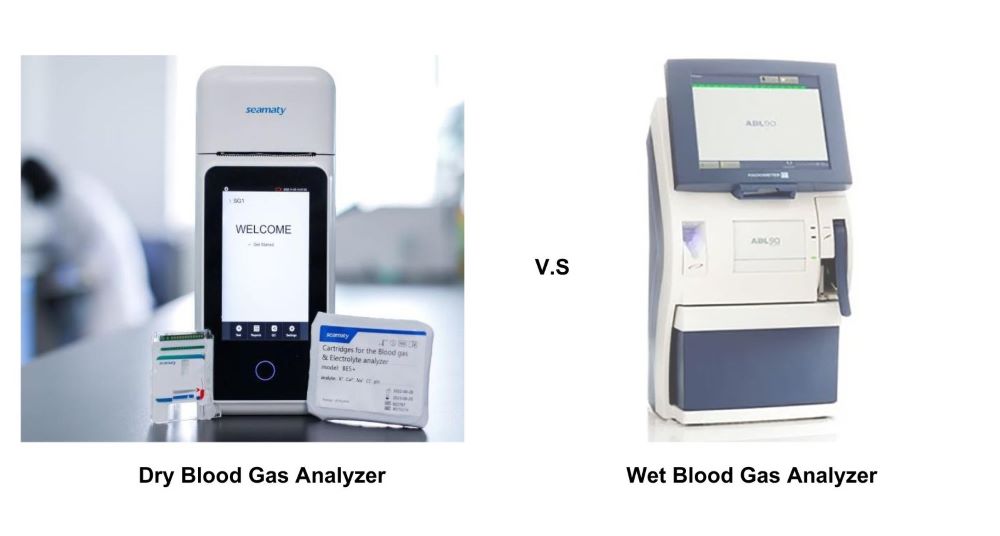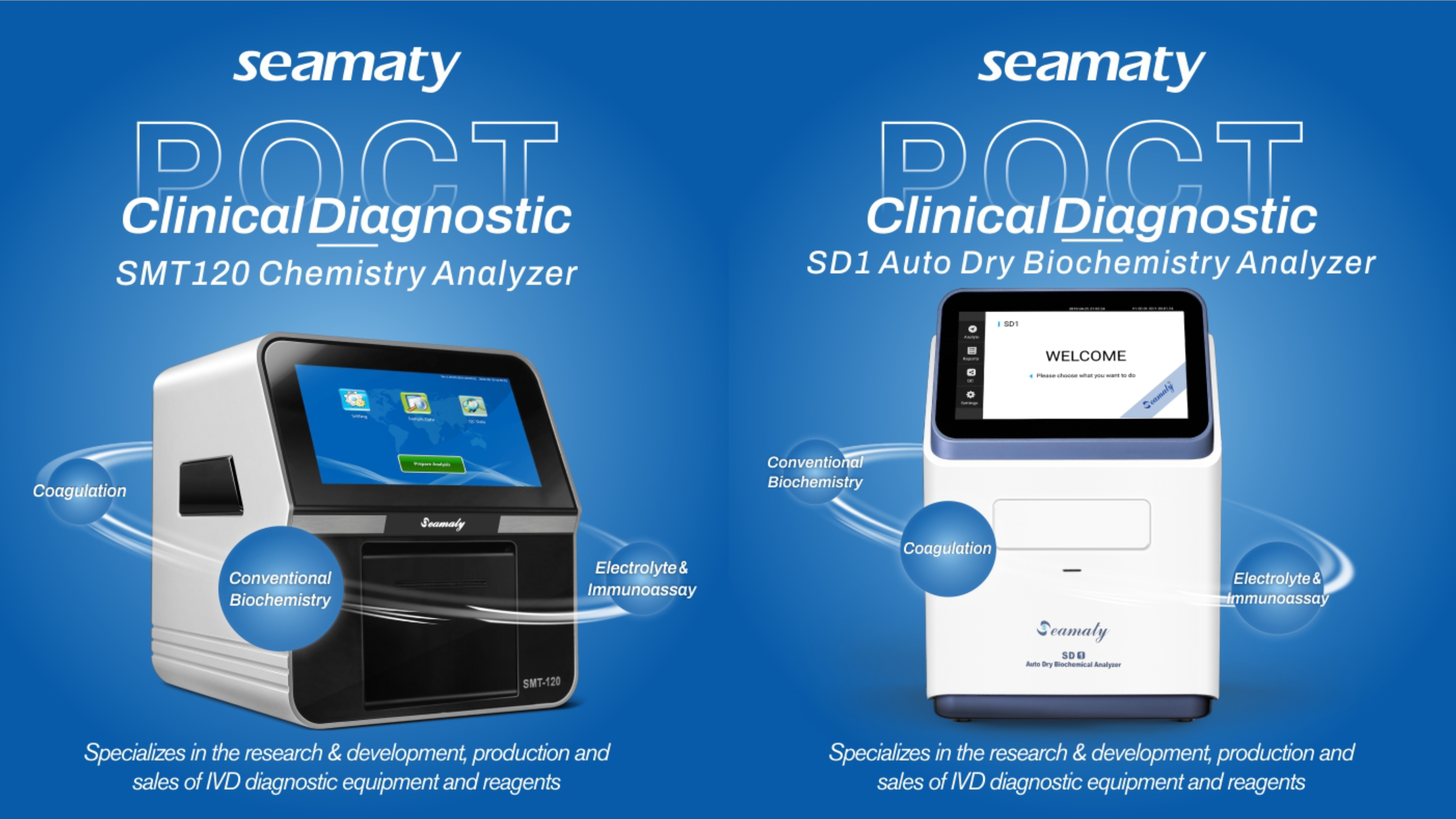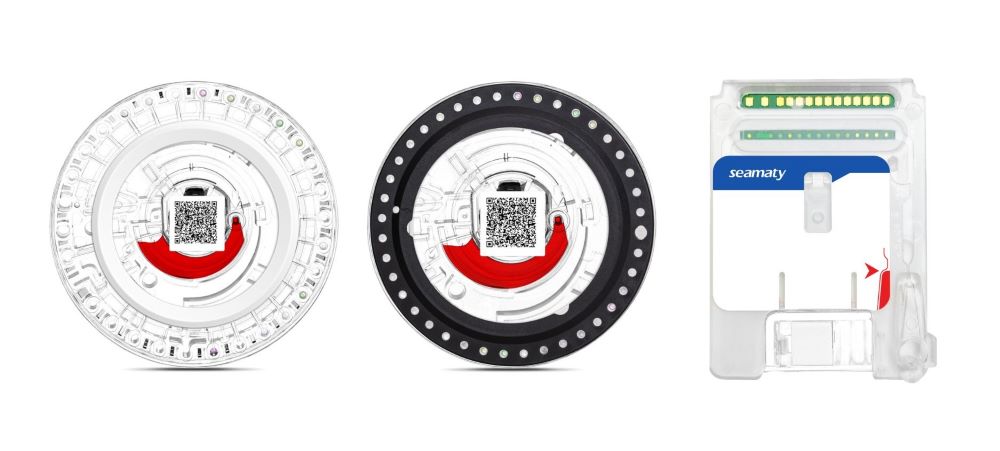release time:2024-03-12 13:54:15
Whether in respiratory care, the ICU, or emergency departments, blood gas analysis is an indispensable diagnostic tool. It not only involves respiratory, circulatory, and metabolic functions but also serves as a crucial basis for clinical diagnosis and disease treatment. When choosing a blood gas analyzer, we often hear about "dry" and "wet" types. What exactly sets them apart? Today, let's delve into the discussion.

Dry Blood Gas Analyzer:
Wet Blood Gas Analyzer:
In summary, dry and wet blood gas analyzers each have their advantages and disadvantages, catering to different scenarios and applications. In practical use, the choice of the instrument should depend on specific circumstances.
The Seamaty SG1 Blood Gas Electrolyte Analyzer employs dry electrochemical technology combined with microfluidic techniques, providing accurate results comparable to industry-standard desktop machines. The compact and convenient design makes it suitable for bedside testing in related departments without spatial constraints. The instrument has no internal fluid pathways, requires no maintenance, and offers easy and fast operation. The sample testing time is only 50 seconds (four minutes including sample preparation and report printing), achieving real-time testing and meeting the diverse needs of various clinical departments.

2024-09-05
Discover the advantages of dry chemistry analyzers vs. wet chemistry analyzers. Explore Seamaty's innovative SMT-120 and SD1 analyzers, offering speed, accuracy, and cost-effectiveness. Compare methodologies, turnaround time, and user-friendly features for informed laboratory decisions.

2024-04-09
Confused about IVD reagents? This guide unlocks the secrets! Explore 3 key categories (hematology, chemistry, etc.) and delve into 9 technical principles (ELISA, spectral analysis) for a comprehensive understanding of these medical workhorses.

2022-08-09
Autoclaves, examination tables, and lighting are not the only vet equipment you need to set up your clinic. You need different tools and gadgets for pets and their parents to make them feel comfortable and get the job done.